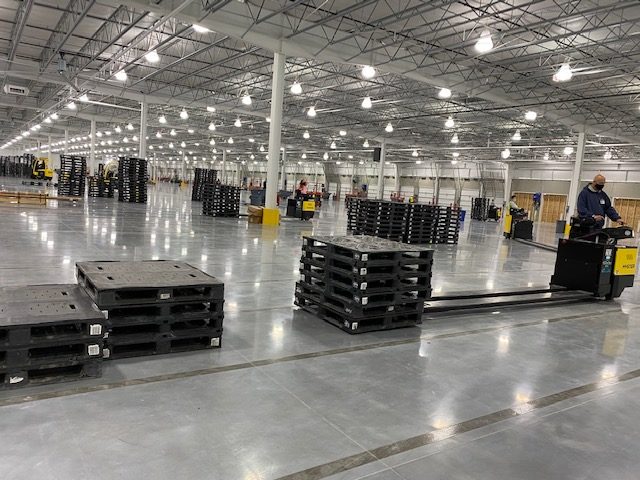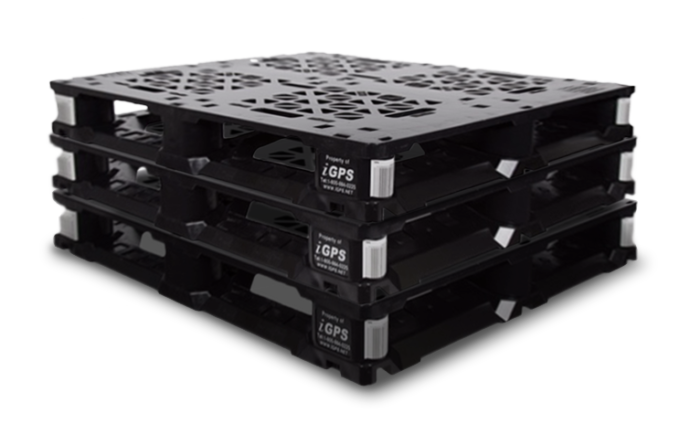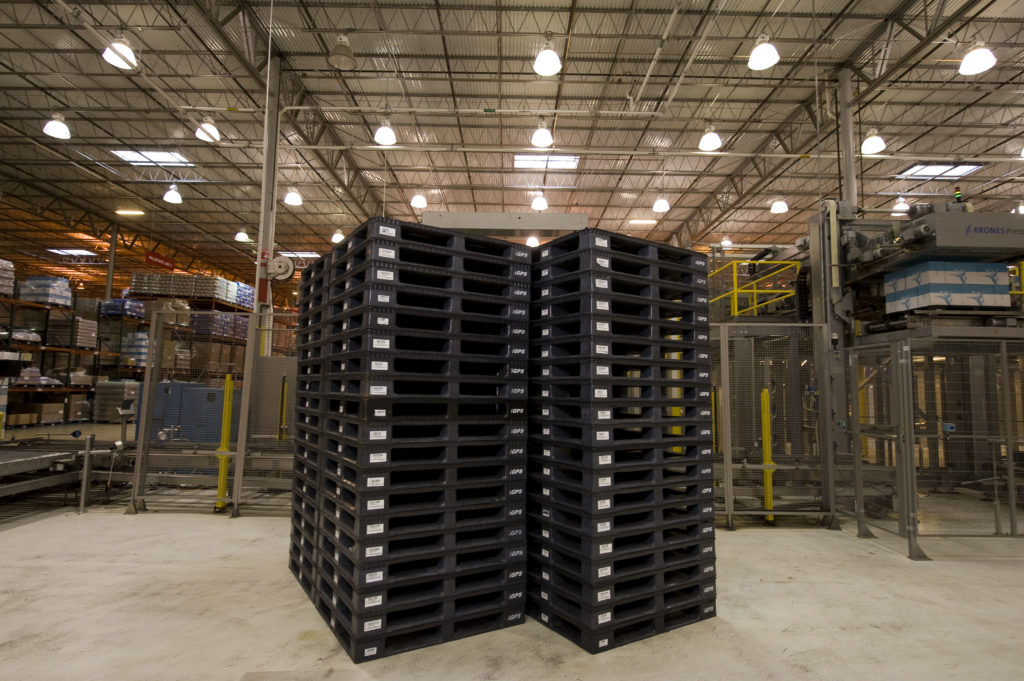Warehouse managers often view pallet sorting and handling as wasted time. While shipping platforms are necessary tools, they also require maintenance and storage. And the more time warehouse workers spend handling and storing empty pallets, the less time they can dedicate to essential tasks like managing inventory, receiving orders, and loading shipments.
By simplifying pallet sorting and handling, warehouse managers can increase efficiencies and reduce costs associated with managing their pallet fleet. Pallet pooling offers a dynamic strategy for saving valuable time and resources.
Common Challenges in Pallet Sorting
 Pallet sorting is not a complicated task; it’s a mundane one. In larger warehouses, pallet sorting requires significant labor and space. Solving pallet sorting challenges require warehouse managers to assess four key issues: volume, tracking, variety, and sanitization.
Pallet sorting is not a complicated task; it’s a mundane one. In larger warehouses, pallet sorting requires significant labor and space. Solving pallet sorting challenges require warehouse managers to assess four key issues: volume, tracking, variety, and sanitization.
Volume |
Tracking |
Variety |
Sanitization |
| The average warehouse may see thousands of pallets a day. Each pallet requires cleaning, sorting, handling, and sometimes repair. The higher the pallet volume, the more hours workers spend handling and sorting them. | Pallet tracking is essential, but it may be overlooked when pallets are empty. However, as pallets can be received from multiple vendors, it’s imperative to keep track of every platform. | Handling multiple types of pallets increases the complexity of fleet management. While the standard 48 x 40-inch pallet will make up the majority of a fleet, there may be other platforms of varying sizes, weights, and materials. | Warehouses rarely have the necessary sanitization tools in-house. They typically have to transport dirty pallets back and forth to a different facility for pressure washing and sanitizing. |
As a result of these challenges, pallet management is a warehouse task that can generate significant waste. Warehouse managers can eliminate issues like those described above by switching to a pallet pooling model that uses resilient and recyclable plastic platforms.
Using Pooling to Simplify Sorting Needs
 Pallet pooling is a method of leasing pallets. This strategy provides many benefits to warehouse managers by offloading maintenance and storage responsibilities to a third party. Managers can boost these benefits by working with a company that offers plastic pallet pooling.
Pallet pooling is a method of leasing pallets. This strategy provides many benefits to warehouse managers by offloading maintenance and storage responsibilities to a third party. Managers can boost these benefits by working with a company that offers plastic pallet pooling.
Key Advantages of Pooled Plastic Pallets:
- Reduced trips: With the right pallet pooling company, warehouse managers can organize pick up from anywhere. This eliminates the hassle of tracking down and retrieving empty pallets from retailers. Managers simply let the pooling company know that the pallets are ready for pickup at a specific location.
- Redundant tracking: While the term—redundant—can conjure negative connotations when discussing efficiency, in the pallet industry, redundancy ensures reliability. Multiple tracking methods—including bar code and RFID—make it much easier to track and log pallet movement. RFID implementation boosts tracking capabilities because it allows passive scanning on the conveyor.
- Standardized size: Wood pallets assume hundreds of different sizes and weights. On the other hand, plastic pallets formed from a shared mold show standard dimensions with minimal variance. This kind of standardization is beneficial when working with automated equipment that requires calibration to hold specific pallet types.
- Sanitary construction: Wood pallets can be challenging to clean as spills can sink deep into the pores and spread onto shipments. Plastic, however, is a non-absorbent material. Dirt and spills stay on the surface, making pallets much easier to clean and sanitize.
- Space management: When a company owns a fleet of pallets, it must store excess pallets for high-demand periods. These empty platforms take up valuable warehouse space that could be utilized more effectively. Pooling allows companies to scale their pallet supply as needed without reserving space for overflow supply.
Plastic pallet pooling allows a company to minimize waste by transferring fleet management to the pooling company. Additionally, strong and uniform plastic pallets are gentle on equipment due to their lighter weight and standard size.
While no warehouse manager will ever escape pallet sorting demands entirely, a pooling model can reduce and simplify these issues. Transitioning to pooled plastic pallets allows managers to work with a third party and ensure a scalable supply of durable, hygienic platforms. Meanwhile, the time saved from maintaining pallets can be applied to tasks that generate revenue.
Leveraging pooling with iGPS pallets can be your answer to the wasted time spent on sorting and maintaining your pallet fleet. To discover the benefits of our pooling program, call 1-800-884-0225, email a specialist at switch@igps.net, or visit our contact page.



